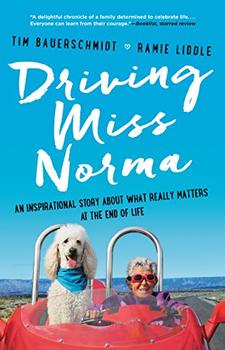Summary | Excerpt | Reading Guide | Reviews | Beyond the book | Read-Alikes | Genres & Themes | Author Bio

A Memoir in Death-Defying Acts
by Tessa FontaineTessa Fontaine's astonishing memoir of pushing past fear, The Electric Woman, follows the author on a life-affirming journey of loss and self-discovery - through her time on the road with the last traveling American sideshow and her relationship with an adventurous, spirited mother.
Turns out, one lesson applies to living through illness, keeping the show on the road, letting go of the person you love most, and eating fire:
The trick is there is no trick.
You eat fire by eating fire.
Two journeys - a daughter's and a mother's - bear witness to this lesson in The Electric Woman.
For three years Tessa Fontaine lived in a constant state of emergency as her mother battled stroke after stroke. But hospitals, wheelchairs, and loss of language couldn't hold back such a woman; she and her husband would see Italy together, come what may. Thus Fontaine became free to follow her own piper, a literal giant inviting her to "come play" in the World of Wonders, America's last traveling sideshow. How could she resist?
Transformed into an escape artist, a snake charmer, and a high-voltage Electra, Fontaine witnessed the marvels of carnival life: intense camaraderie and heartbreak, the guilty thrill of hard-earned cash exchanged for a peek into the impossible, and, most marvelous of all, the stories carnival folks tell about themselves. Through these, Fontaine trained her body to ignore fear and learned how to keep her heart open in the face of loss.
A story for anyone who has ever imagined running away with the circus, wanted to be someone else, or wanted a loved one to live forever, The Electric Woman is ultimately about death-defying acts of all kinds, especially that ever constant: good old-fashioned unconditional love.
The memoir is at its best when Fontaine narrates the far-from-glamorous life at the sideshow. The hours are long and the work is difficult and seems unending; not only must the crew perform non-stop for many hours at a time, they're also responsible for taking down the equipment and packing it up for transport to the next fair. The entertaining stories of life on the road are peppered with sometimes funny, sometimes nerve-wracking vignettes, as well as descriptions of the type of eclectic personalities one would expect to encounter at a sideshow. While the sections that discuss the author's childhood and interactions with her mother are carefully woven into the text, they feel a bit forced...continued
Full Review
(703 words)
This review is available to non-members for a limited time. For full access,
become a member today.
(Reviewed by Kim Kovacs).
In her memoir, The Electric Woman, Tess Fontaine recounts her experiences working for a five-month long season with World of Wonders, the last traditional traveling sideshow in the United States.
As the name implies, sideshows are smaller acts that are part of a larger fair or circus. According to the International Independent Showmen's Museum, sideshows in the United States had their origins in the Chicago World Fair of 1893. Smaller permanent fairs, annual state fairs and traveling shows emerged after the World Fair closed, and sideshows were part of the offerings from the start. At one time, hundreds toured the country.
Sideshows have always featured performers who had unusual physical talents, such as contortionists or those who ...
This "beyond the book" feature is available to non-members for a limited time. Join today for full access.

If you liked The Electric Woman, try these:

by Meghan Flaherty
Published 2018
From a dazzling new literary voice, a debut memoir about a young woman learning to dance tango, becoming comfortable in her own skin and in the arms of others.

by Tim Bauerschmidt, Ramie Liddle
Published 2018
Infused with this irrepressible nonagenarian's wisdom, courage, and generous spirit, and filled with sixteen pages of color photographs, Driving Miss Norma reminds us that life is beautiful and precious, and that family, fun, and self-discovery can happen at any age.
It was one of the worst speeches I ever heard ... when a simple apology was all that was required.
Click Here to find out who said this, as well as discovering other famous literary quotes!